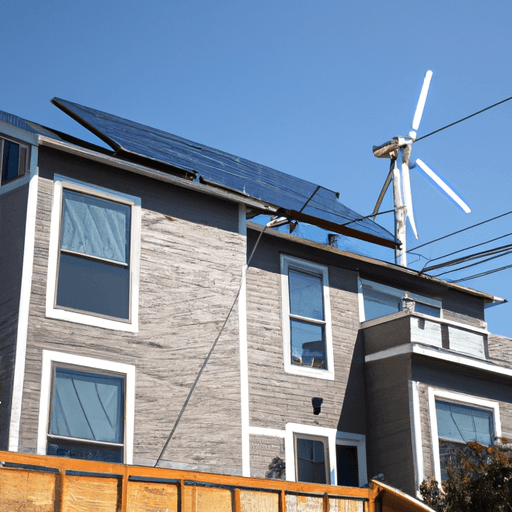When it comes to saving money in the long run, solar energy has become a compelling option for homeowners looking to reduce their energy bills. Let's delve into the comparison between solar and traditional energy sources to determine which provides more significant savings over time.
How Do Initial Costs Compare?
- Initially, solar energy systems have higher upfront costs compared to traditional energy sources like coal or natural gas.
- However, the prices of solar panels have decreased significantly over the years, making solar energy more affordable for homeowners.
- Homeowners can take advantage of various incentives such as tax credits, rebates, and grants to offset the initial costs of installing solar panels.
What About Tax Credits and Incentives for Solar Energy?
- The Federal Solar Investment Tax Credit (ITC) allows homeowners to deduct 26% of the cost of installing a solar energy system from their federal taxes.
- Some states and local governments offer additional incentives, such as rebates and performance-based incentives, further reducing the upfront costs of going solar.
- These tax credits and incentives make solar energy a more attractive and cost-effective option for homeowners in both the short and long term.
Analyzing Long-Term Savings: Solar vs. Traditional Energy
- Solar energy systems have lower operating and maintenance costs compared to traditional energy sources, which require ongoing fuel purchases and maintenance.
- Solar panels have a lifespan of 25-30 years, providing homeowners with decades of clean energy and reduced electricity bills.
- According to the Solar Energy Industries Association, homeowners can save between $10,000 to $30,000 over 20 years by switching to solar power.
- Additionally, with rising electricity costs and the uncertainty of future energy prices, investing in solar energy can provide homeowners with long-term financial stability and savings.
Efficiency Gains and Environmental Benefits
- Solar energy systems have become more efficient over time, thanks to advancements in technology and improved solar panel efficiency.
- By harnessing the power of the sun, solar energy reduces reliance on fossil fuels, lowering greenhouse gas emissions and mitigating climate change.
- Investing in solar energy not only saves homeowners money but also contributes to a cleaner and more sustainable environment for future generations.
Safety Improvements and Power Outage Benefits
- Solar energy systems provide homeowners with energy independence and resilience during power outages.
- With battery storage options, homeowners can store excess solar energy generated during the day and use it during grid outages or peak demand periods.
- Solar energy systems also reduce the risk of electrical fires and other safety hazards associated with traditional energy sources.
Conclusion: The Cost-Saving Potential of Solar Energy
In conclusion, while the initial costs of installing a solar energy system may seem daunting, the long-term savings and benefits far outweigh the upfront investment. With tax credits, incentives, efficiency gains, safety improvements, and power outage benefits, solar energy emerges as a cost-effective and sustainable solution for homeowners looking to reduce their energy bills and environmental impact. By harnessing the power of the sun, homeowners can enjoy significant savings, energy independence, and a cleaner future for all.
Incorporating solar energy into your home can lead to substantial financial benefits and a greener lifestyle. Embrace solar power today for a brighter and more sustainable tomorrow.
